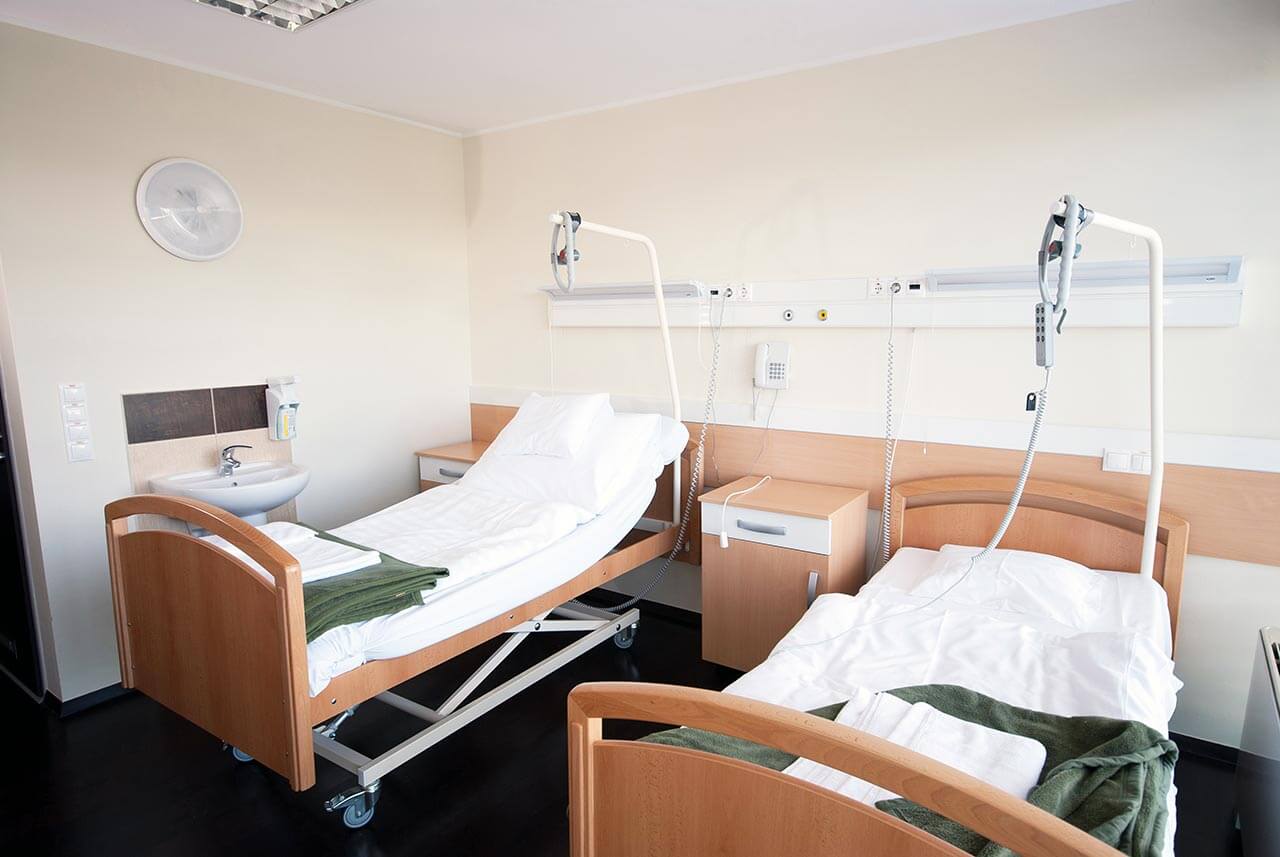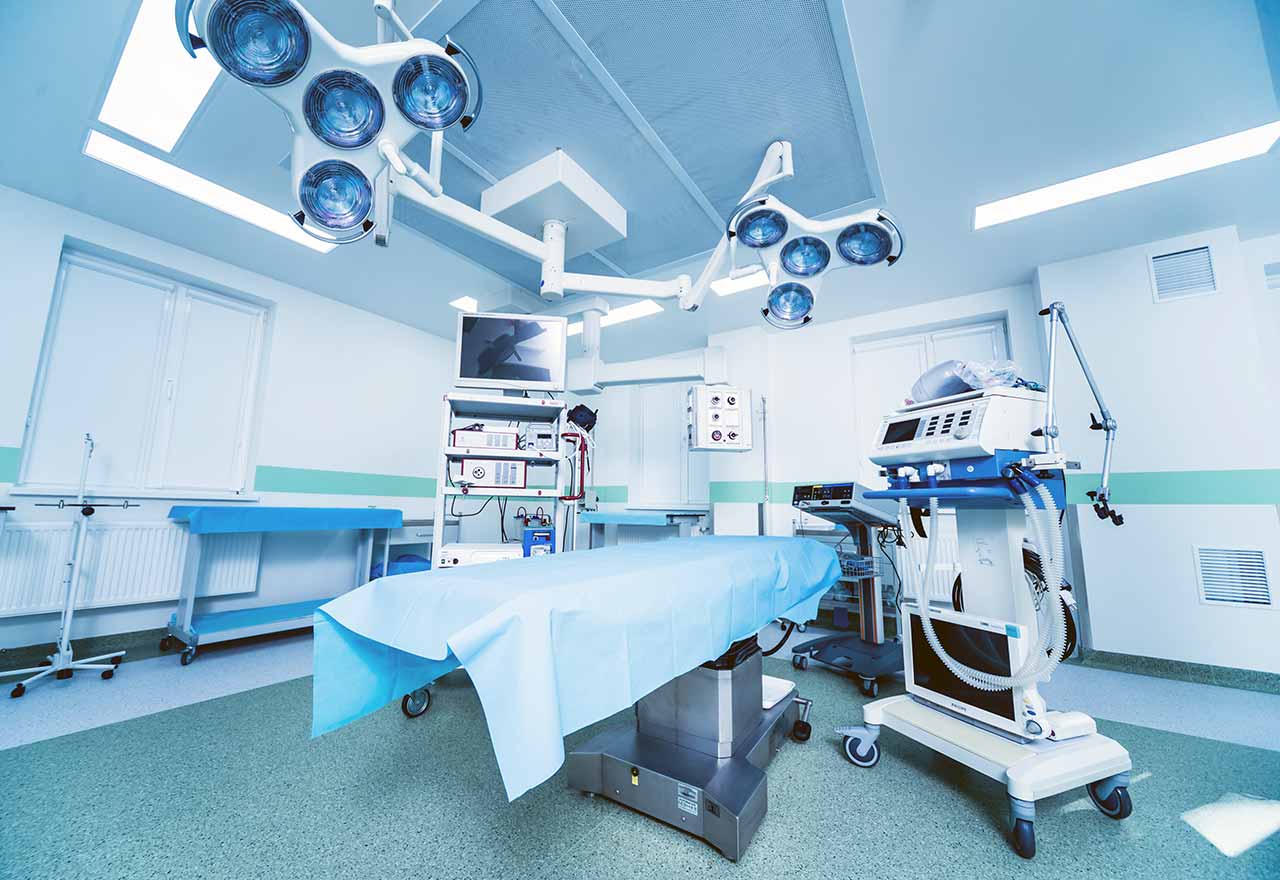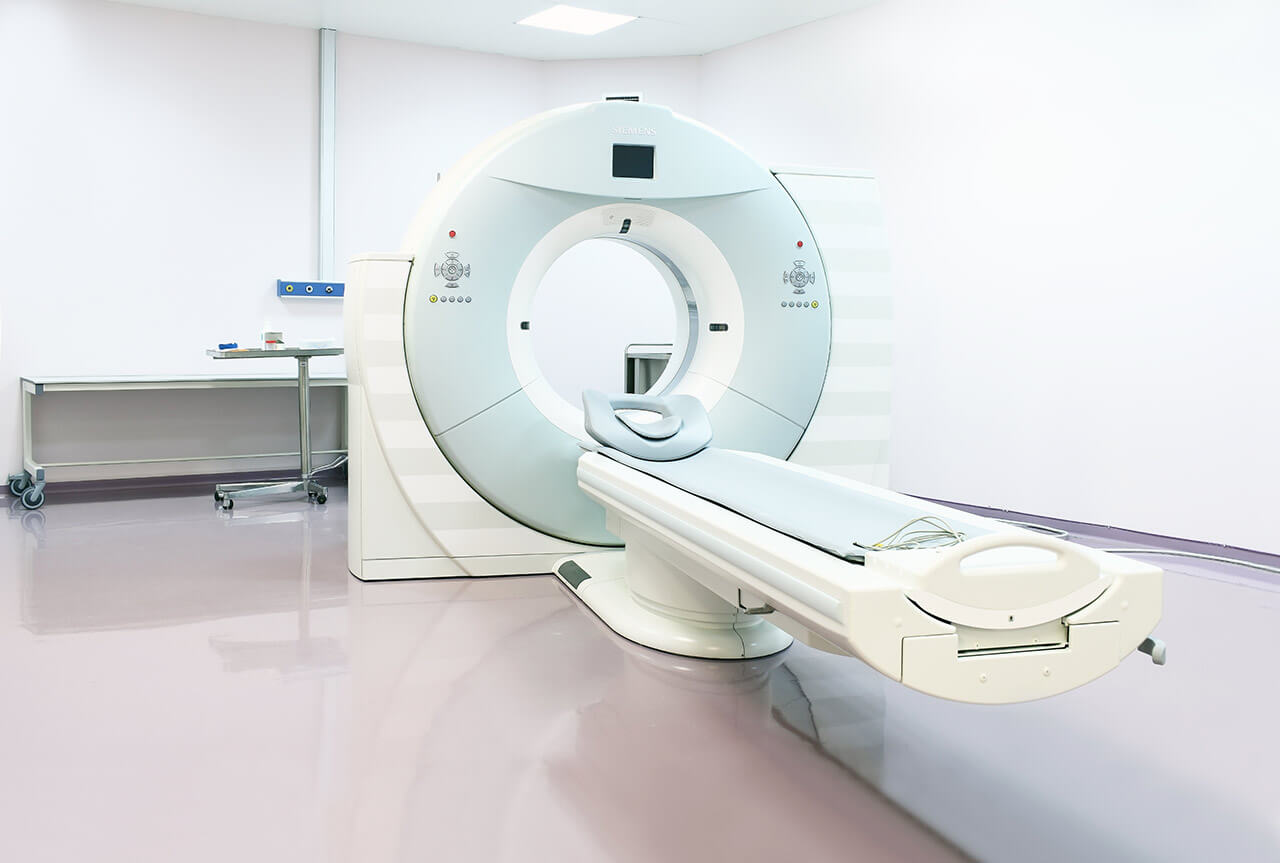
The program includes:
- Initial presentation in the clinic
- clinical history taking
- review of medical records
- physical examination
- laboratory tests:
- general blood analysis
- lipid metabolism
- carbohydrate metabolism
- mineral metabolism
- protein electrophoresis
- immune stasus
- immunofluorescence assay (IFA)
(total Lyme titer or IgG and IgM titers) - enzyme immunoassay (ELISA)
- PCR
- inflammation indicators
- indicators of blood coagulation
- joint aspiration to exclude other causes of
effusion (eg., septic arthritis, gout, pseudogout) (on indication 1000 €) - CSF analysis in patients with meningitis (on indication 2500 €)
- ECG to identify Lyme carditis
- nursing services
- consultation of all leading experts
- development of individual treatment plan
- written statement
Required documents
- Medical records
Service
You may also book:
 BookingHealth Price from:
BookingHealth Price from:
About the department
The Department of Nephrology and Rheumatology at the HELIOS University Hospital Wuppertal provides the full range of diagnostic and therapeutic services to patients with kidney diseases, rheumatic pathologies and arterial hypertension. The department is certified in accordance with the standards of the German Society of Nephrology (DGfN), and therefore the quality of treatment is at the highest European level. The department operates an advanced Dialysis Center, whose specialists carry out all modern types of renal replacement therapy, including peritoneal dialysis and extracorporeal photopheresis. The Dialysis Center has 32 specially equipped beds for blood purification procedures. Its specialists carry out more than 8,000 renal replacement therapy procedures every year, so the department's doctors are deservedly proud of their successful experience in this field. In addition, the department has all the necessary resources for the diagnostics and treatment of kidney lesions caused by arterial hypertension. Nephrologists are also responsible for the care of patients before and after kidney transplant surgery. The department's rheumatologists pay special attention to the treatment of systemic diseases affecting the kidneys. The department's medical team prefers an individual approach to each patient and works in compliance with the latest clinical protocols. The Head Physician of the department is Dr. med. Tobias Türk.
The department's nephrologists have long clinical experience in the treatment of kidney diseases and regularly improve their professional skills in advanced training courses in order to offer patients innovative treatment methods. The therapeutic process begins with an initial examination that includes laboratory tests and kidney ultrasound. If necessary, additional tests are prescribed to the patient: Doppler ultrasonography of the renal arteries, urography, cystoscopy, scintigraphy, CT, MRI, biopsy and others. In some cases, specialists from related medical fields, including cardiologists and rheumatologists, are involved in the diagnostics. The diagnosis is made based on the diagnostic results, after which doctors begin treatment planning. The treatment regimen for nephrological diseases is determined strictly individually and depends on the particular diagnosis, the general health of the patient and the presence of comorbidities. In most cases, the patient receives pharmacotherapy on an outpatient basis, but some acute forms of kidney disease (acute kidney failure, acute glomerulonephritis, etc.) require inpatient treatment under the constant medical supervision. With severe kidney dysfunction, the patient is prescribed dialysis – renal replacement therapy. If the patient needs surgical treatment, surgeons are involved in the therapeutic process.
The treatment of rheumatic diseases is also among the priority areas of work of the department's doctors. Of particular interest is medical care for patients with systemic rheumatic pathologies affecting the kidneys. The diagnostics of rheumatic pathology begins with a study of the patient's medical history, clinical examination and laboratory tests. If required, the patient undergoes additional instrumental diagnostics – X-ray, CT, MRI, arthroscopy, etc. The main treatment method for rheumatic diseases is the intake of medications that are individually selected for the patient by the attending physician. Physiotherapeutic procedures and therapeutic exercises are recommended as auxiliary methods.
The department specializes in the diagnostics and treatment of the following diseases:
- Nephrology
- Acute and chronic kidney failure
- Glomerulonephritis
- Pyelonephritis
- Hematuria
- Kidney stone disease
- Cystic kidney disease
- Malignant kidney tumors (kidney cancer is treated in cooperation with highly specialized experts)
- Pathological kidney lesions caused by arterial hypertension
- Drug-induced kidney disease
- Rheumatology
- Rheumatoid arthritis
- Psoriatic arthritis
- Arthrosis
- Ankylosing spondylitis
- Systemic lupus erythematosus
- Systemic scleroderma
- Mixed collagenoses
- Vasculitides
- Gout
- Other pathologies and treatment methods
Photo of the doctor: (c) Helios Universitätsklinikum Wuppertal
About hospital
According to the prestigious Focus magazine, the HELIOS University Hospital Wuppertal ranks among the top medical facilities in Germany!
The hospital rightfully enjoys the status of the maximum care medical facility and provides its high-quality services in all modern fields of medicine. The hospital operates on the basis of the Witten/Herdecke University, which was opened in 1982 and today is considered one of the best in Germany. Thus, many head physicians of the medical complex are in charge of the corresponding department at the university, which contributes to the close intertwining of research activities and clinical practice. The hospital has long traditions and its own values – the main goal of doctors is to provide comprehensive medical care focused not only on curing the disease, but also on the patient's personal needs.
The hospital has 1,000 beds. The doctors of the medical facility admit more than 50,000 inpatients annually. In addition, more than 100,000 outpatients undergo diagnostic and therapeutic procedures. Such high attendance rates speak for themselves and are undeniable proof of the high-quality medical service of the European level. The medical staff of the hospital has more than 2,500 employees, whose main task is to restore the patient's health and provide him with a decent quality of life.
The hospital has more than 26 specialized departments, as well as many narrowly focused centers and institutes dealing with the treatment of patients suffering from a particular group of diseases: Breast Center, Cancer Center, Cardiology Center, Trauma Center, Spine Center and others. The primary clinical focus of the medical center is cancer treatment.
For more than 25 years, the hospital has been running a special quality management system for medical care, which regulates the aspects of work of the medical staff, compliance with hygiene and safety standards during diagnostics and treatment. Consequently, patients can be sure that their health is in the safe hands of true professionals who work in accordance with the latest medical standards.
Special attention should be paid to the honors of the hospital for excellent patient care. The medical complex has quality certificates from the German Cancer Society (DKG), the German Trauma Society (DGU), the German Cardiac Society (DGK), the German Stroke Society (DSG) and other professional German societies.
Photo: (с) depositphotos
Accommodation in hospital
Patients rooms
The patients of the HELIOS University Hospital Wuppertal live in comfortable single, double, triple and quadruple rooms. Each patient room has an ensuite bathroom with shower and toilet. The standard room furnishings include a comfortable automatically adjustable bed, a bedside table, a wardrobe, a TV and a telephone. The hospital has Wi-Fi (free). For maximum patient comfort, there is a nurse call device on the bedside table. This device allows the patient to control the TV, radio, turn on or off the lights, and adjust the position of the bed.
The patients of the hospital are also offered accommodation in enhanced-comfort rooms. These rooms additionally provide a safe and a free minibar with soft drinks. The enhanced-comfort rooms also have a spacious bathroom with hairdryer, bathrobe, towels and toiletries.
Meals and Menus
The patients of the hospital are offered three meals a day: breakfast, lunch and dinner. The menu offers a variety of delicious dishes to suit all tastes, including dietary and vegetarian options.
The hospital also has a bistro where one can taste delicious hot dishes, cold snacks, desserts, as well as a cup of tea, coffee or refreshments.
The patients staying in enhanced-comfort rooms are offered a separate menu that includes a wider and more refined range of dishes. In addition, fresh fruit, tea, coffee and desserts are delivered to the patient room every day, if desired.
Further details
Standard rooms include:
Religion
The religious services are available upon request.
Accompanying person
During an inpatient program, your accompanying person can stay with you in the patient room or in the hotel of your choice.
Hotel
During an outpatient program, you can stay in the hotel of your choice. Our managers will help you choose the most suitable options.




